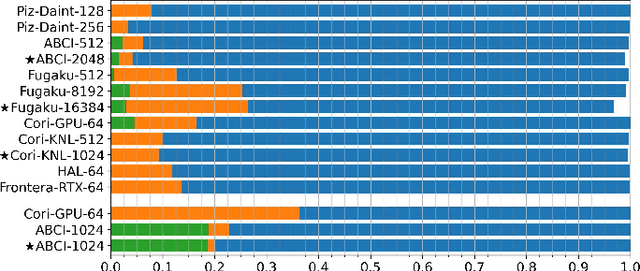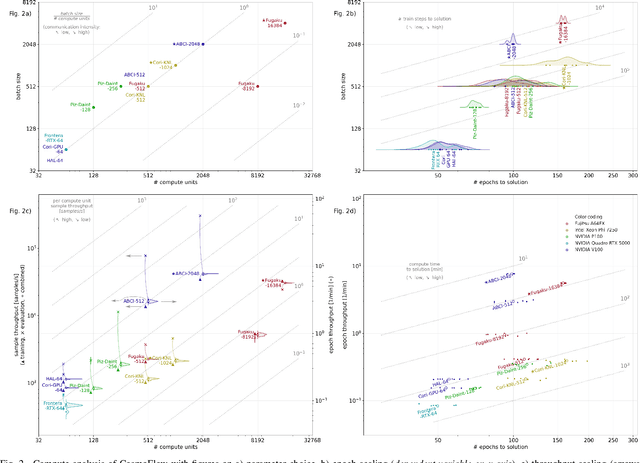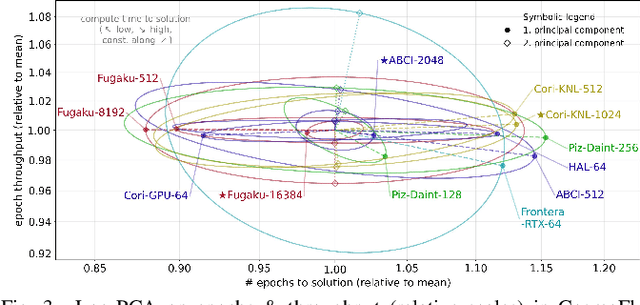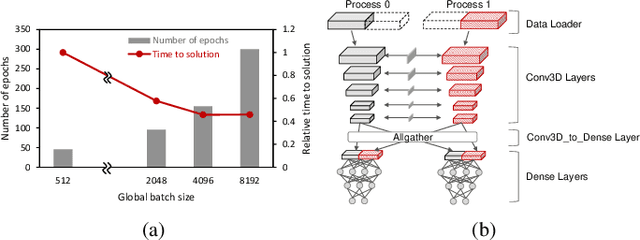Koichi Shirahata
MLPerf HPC: A Holistic Benchmark Suite for Scientific Machine Learning on HPC Systems
Oct 26, 2021



Abstract:Scientific communities are increasingly adopting machine learning and deep learning models in their applications to accelerate scientific insights. High performance computing systems are pushing the frontiers of performance with a rich diversity of hardware resources and massive scale-out capabilities. There is a critical need to understand fair and effective benchmarking of machine learning applications that are representative of real-world scientific use cases. MLPerf is a community-driven standard to benchmark machine learning workloads, focusing on end-to-end performance metrics. In this paper, we introduce MLPerf HPC, a benchmark suite of large-scale scientific machine learning training applications driven by the MLCommons Association. We present the results from the first submission round, including a diverse set of some of the world's largest HPC systems. We develop a systematic framework for their joint analysis and compare them in terms of data staging, algorithmic convergence, and compute performance. As a result, we gain a quantitative understanding of optimizations on different subsystems such as staging and on-node loading of data, compute-unit utilization, and communication scheduling, enabling overall $>10 \times$ (end-to-end) performance improvements through system scaling. Notably, our analysis shows a scale-dependent interplay between the dataset size, a system's memory hierarchy, and training convergence that underlines the importance of near-compute storage. To overcome the data-parallel scalability challenge at large batch sizes, we discuss specific learning techniques and hybrid data-and-model parallelism that are effective on large systems. We conclude by characterizing each benchmark with respect to low-level memory, I/O, and network behavior to parameterize extended roofline performance models in future rounds.
An Automated CNN Recommendation System for Image Classification Tasks
Dec 27, 2016



Abstract:Nowadays the CNN is widely used in practical applications for image classification task. However the design of the CNN model is very professional work and which is very difficult for ordinary users. Besides, even for experts of CNN, to select an optimal model for specific task may still need a lot of time (to train many different models). In order to solve this problem, we proposed an automated CNN recommendation system for image classification task. Our system is able to evaluate the complexity of the classification task and the classification ability of the CNN model precisely. By using the evaluation results, the system can recommend the optimal CNN model and which can match the task perfectly. The recommendation process of the system is very fast since we don't need any model training. The experiment results proved that the evaluation methods are very accurate and reliable.
 Add to Chrome
Add to Chrome Add to Firefox
Add to Firefox Add to Edge
Add to Edge